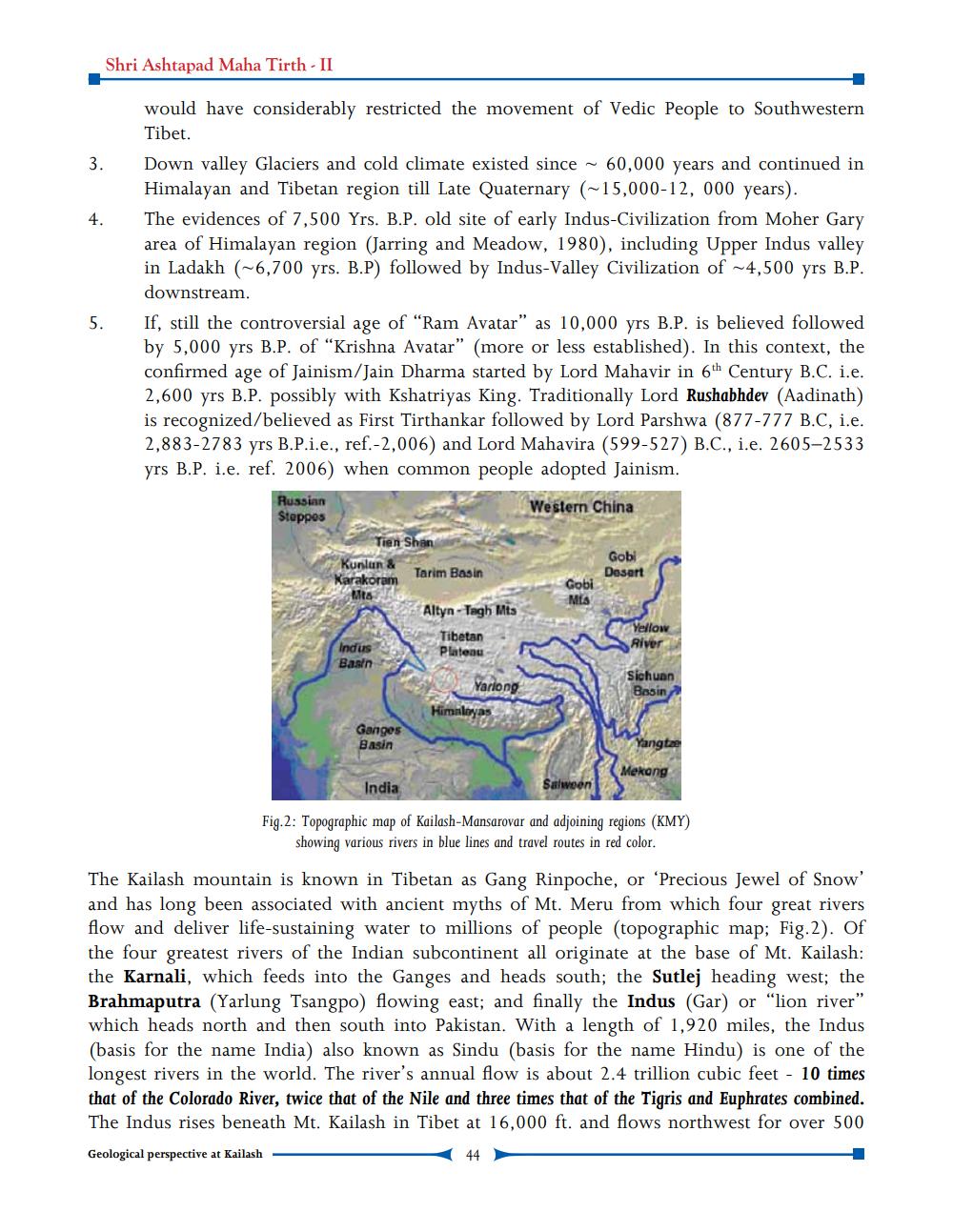________________
3.
4.
5.
Shri Ashtapad Maha Tirth - II
would have considerably restricted the movement of Vedic People to Southwestern Tibet.
Down valley Glaciers and cold climate existed since 60,000 years and continued in Himalayan and Tibetan region till Late Quaternary (~15,000-12, 000 years).
The evidences of 7,500 Yrs. B.P. old site of early Indus-Civilization from Moher Gary area of Himalayan region (Jarring and Meadow, 1980), including Upper Indus valley in Ladakh (~6,700 yrs. B.P) followed by Indus-Valley Civilization of 4,500 yrs B.P. downstream.
If, still the controversial age of "Ram Avatar" as 10,000 yrs B.P. is believed followed by 5,000 yrs B.P. of "Krishna Avatar" (more or less established). In this context, the confirmed age of Jainism/Jain Dharma started by Lord Mahavir in 6th Century B.C. i.e. 2,600 yrs B.P. possibly with Kshatriyas King. Traditionally Lord Rushabhdev (Aadinath) is recognized/believed as First Tirthankar followed by Lord Parshwa (877-777 B.C, i.e. 2,883-2783 yrs B.P.i.e., ref.-2,006) and Lord Mahavira (599-527) B.C., i.e. 2605-2533 yrs B.P. i.e. ref. 2006) when common people adopted Jainism.
Western China
Russian Steppes
Tien Shan
Kunlun & Karakoram
Mits
Indus Basin
Ganges Basin
Tarim Basin
Altyn-Tagh Mts
Tibetan
Plateau
Yarlong
Himalayas
Gobi
Mis
Gobi Desert
S
Yellow River
Sichuan Basin
Yangt
Mekong
India
Salween
Fig.2: Topographic map of Kailash-Mansarovar and adjoining regions (KMY) showing various rivers in blue lines and travel routes in red color.
The Kailash mountain is known in Tibetan as Gang Rinpoche, or 'Precious Jewel of Snow' and has long been associated with ancient myths of Mt. Meru from which four great rivers flow and deliver life-sustaining water to millions of people (topographic map; Fig.2). Of the four greatest rivers of the Indian subcontinent all originate at the base of Mt. Kailash: the Karnali, which feeds into the Ganges and heads south; the Sutlej heading west; the Brahmaputra (Yarlung Tsangpo) flowing east; and finally the Indus (Gar) or "lion river" which heads north and then south into Pakistan. With a length of 1,920 miles, the Indus (basis for the name India) also known as Sindu (basis for the name Hindu) is one of the longest rivers in the world. The river's annual flow is about 2.4 trillion cubic feet - 10 times that of the Colorado River, twice that of the Nile and three times that of the Tigris and Euphrates combined. The Indus rises beneath Mt. Kailash in Tibet at 16,000 ft. and flows northwest for over 500 Geological perspective at Kailash
44




